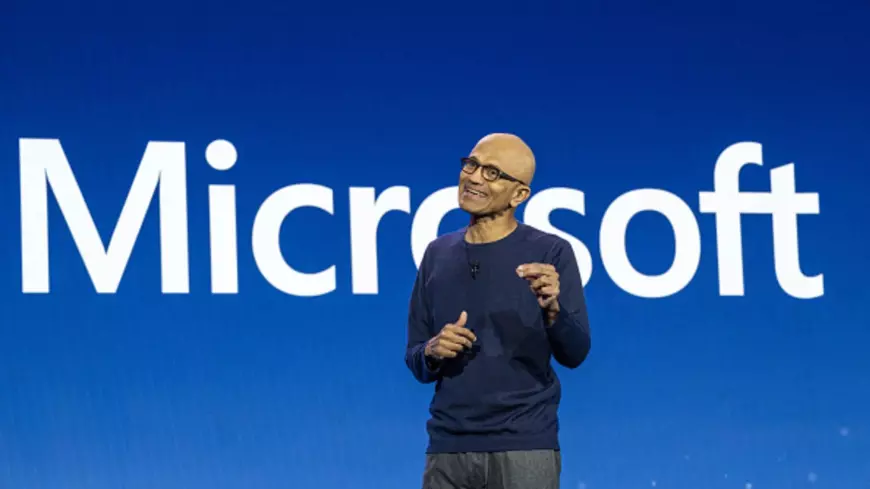Microsoft shares soared to an all-time high following the release of an AI cybersecurity solution
Following the unveiling of an AI-driven cybersecurity tool, Microsoft's stock experienced a historic surge, reaching an all-time pinnacle.

The unveiling of Microsoft's newest AI offering propelled its stock to an unprecedented level on Thursday. In intraday trading, the technology company's stock peaked at $427.81 before settling at $425.22, as reported by Investor's Business Daily. This marks its highest point since February 9th, when it reached $420.82.
Microsoft announced on Wednesday the upcoming launch of its Microsoft Copilot for Security tool, set to go live globally on April 1st. This tool is touted as the AI industry's "first generative AI solution" for security and IT professionals, trained on a vast amount of data and threat intelligence, including over 78 trillion security signals processed by the company daily.
According to an economic study conducted by Microsoft, security analysts using Copilot for Security reported being 22% faster, with 7% noting improved accuracy in their work.
Vasu Jakkal, corporate vice president of security, compliance, identity, and management at Microsoft, stated to Quartz that cyber attackers are increasingly leveraging large language models (LLMs) to enhance their productivity. For instance, they might utilize AI tools like ChatGPT for tasks such as reconnaissance on individuals and companies to identify security vulnerabilities, enhance coding skills, crack passwords, and spread misinformation.
Jakkal highlighted that nation-state and financial crime actors target companies in cyberattacks with the aim of gathering information and executing attacks to bolster their influence and gain economic advantages.
However, there are reports indicating that some Microsoft employees feel the company's AI efforts are overly focused on its long-standing partnership with OpenAI, which spans several years and involves substantial investment.
According to a Business Insider report, a former Microsoft executive expressed the sentiment that the Azure AI division primarily functions as technical support for OpenAI. This individual suggested that Eric Boyd, corporate vice president of Microsoft's Azure AI Platform, essentially maintains the OpenAI service, implying that the division's role in innovation has diminished, and it now primarily serves as an IT support function for OpenAI.











































